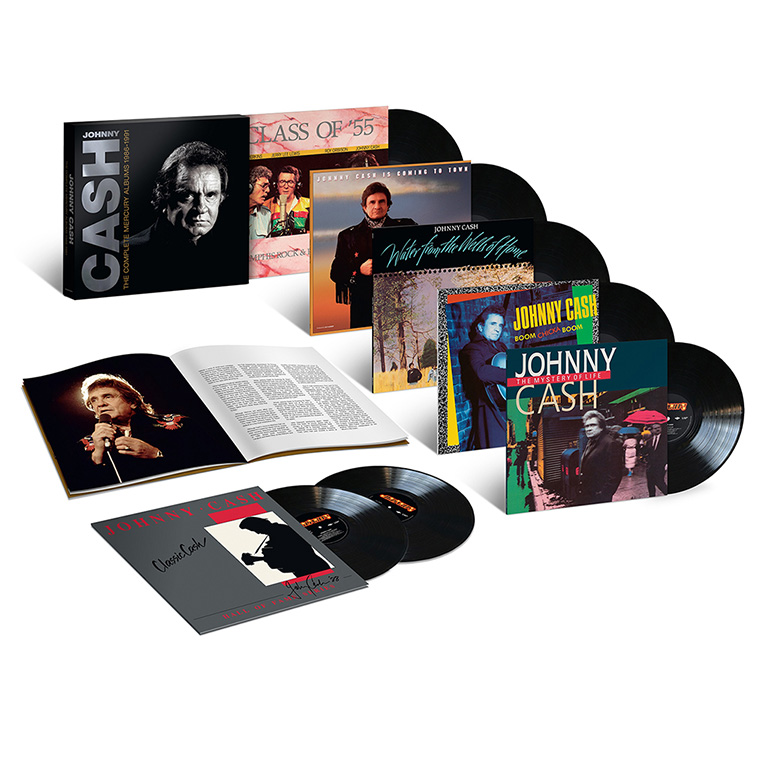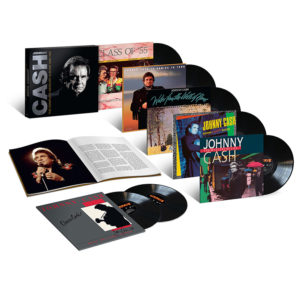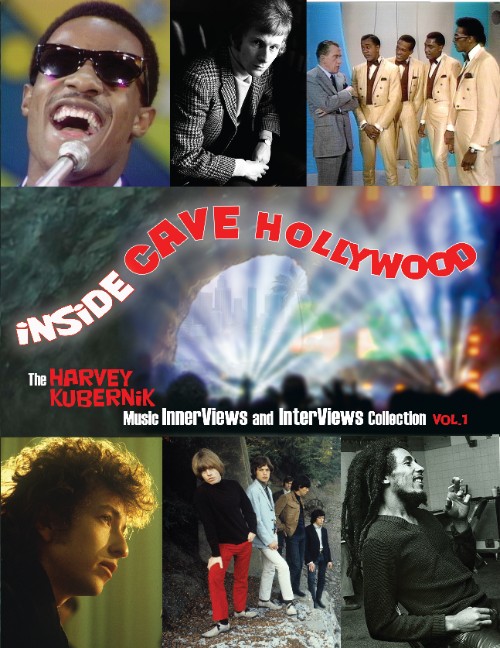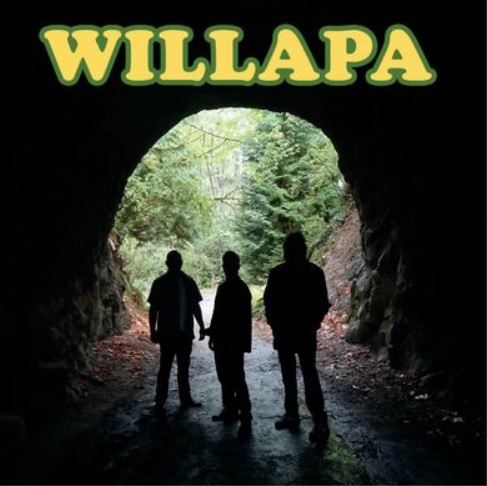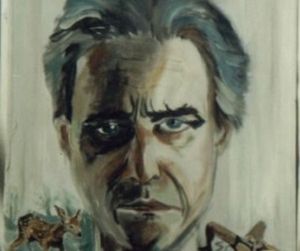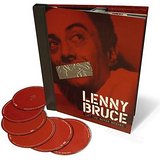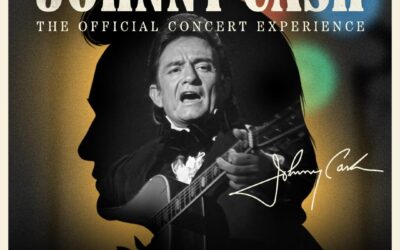RE-EXAMINED WITH SUITE OF NEWLY REMASTERED RELEASES INCLUDING COMPREHENSIVE SIX ALBUM VINYL AND CD BOX SETS, THE COMPLETE MERCURY RECORDINGS 1986-1991, AND NEW GREATEST HITS, EASY RIDER: THE BEST OF THE MERCURY RECORDINGS; CASH’S MERCURY ALBUMS REISSUED ON VINYL; THIRD MAN RECORDS ISSUE May 5, 1973 JOHNNY CASH CONCERT A NIGHT TO REMEMBER AS 2 LP SET
Harvey Kubernik on the Johnny Cash and Bob Dylan Relationship
By Harvey Kubernik © 2020
In the mid-1980s as Johnny Cash found himself between labels, Mercury Records snatched up the country legend for what would end up being a prolific string of six albums in five years.
The records, released from 1986 to 1991, were a diverse collection that included a notable reunion with fellow Sun Records alumni Roy Orbison, Jerry Lee Lewis and Carl Perkins, star-studded collaborations with Paul McCartney and Linda McCartney, Glen Campbell, Waylon Jennings, Emmylou Harris, Hank Williams Jr. and others, inspired takes on songs from Elvis Costello, Guy Clark and Harry Chapin, the Man in Black revisiting his classic hits, and some of the finest songs ever written by Cash. Despite the quality of material, Cash’s stint with Mercury has never been revisited—until now.
The Mercury/UMe record label announcement touted “Cash’s often overlooked and underappreciated chapter of his body of work is now available for revisiting with a suite releases via Mercury/UMe including a comprehensive new box set, The Complete Mercury Recordings 1986-1991, and a new greatest hits album, Easy Rider: The Best Of The Mercury Recordings, a newly assembled collection that compiles 24 highlights selected from Cash’s Mercury catalog. Easy Rider is available to stream now or as a single CD or double LP.
“The Complete Mercury Recordings 1986-1991, available digitally, on 7CD or 7LP on 180-gram vinyl, collects all six albums – Class of ’55: Memphis Rock & Roll omecoming (1986), Johnny Cash Is Coming to Town (1987), Water from the Wells of Home (1988), Classic Cash: Hall of Fame Series (1988), Boom Chicka Boom (1990) and The Mystery of Life (1991), and – that Cash recorded during his Mercury tenure and presents them together for the first time in a slipcase emblazoned with the distinctive bold Cash logo,” detailed the Mercury/UMe label statement.
All of the albums have been remastered from the original Mercury master tapes by noted engineer Kevin Reeves at UMG Studios Nashville. The set was assembled by Grammy Award-winning producer Bill Levenson and features extensive new liner notes by veteran music journalist Scott Schinder.
“In addition,” the label product description stressed “all of the albums are also now available individually on 180-gram black vinyl, with Classic Cash: Hall Of Fame Series as a two-LP set. This marks the first time that Cash’s Mercury albums have been reissued. The CD and digital versions of The Complete Mercury Recordings 1986-1991 are augmented with several rare or previously unreleased tracks and an additional 20-track album of spare early mixes aptly titled Classic Cash: Hall Of Fame Series (Early Mixes), mastered from tapes newly discovered in the Mercury vaults. Although these never-before-heard versions are not included in the vinyl box, they’re being released on October 24 as a Record Store Day First exclusive, as a stand-alone limited edition double LP.”
Music journalist and author Robert Hilburn penned JOHNNY CASH: THE LIFE, (Little, Brown), a definitive and revealing book on the pop culture icon.
In a 2013 interview with Robert, we discussed Cash’s Mercury/Polygram label period.
“One of the most enjoyable aspects of writing the book—going back and listening to the dozens of albums and discovering things I may have missed or forgotten. With most artists, the appeal of the music wanes once you get past the hits. With Johnny Cash, the music often tends to get richer beyond the hits.
“Of John’s own recordings, a few things stand out from the latter years. One was a song he recorded during his brief spell on Mercury titled ‘The Night Hank Williams Came to Town.’ It was co-written by Bobby Braddock, who co-wrote ‘He Stopped Loving Her Today.’
“There were also a couple of great songs John wrote while under contract to Mercury in the late 1980s/early 1990s, but he didn’t want to put them on a Mercury album because he knew they’d get lost. Country radio had forgotten about him by then and Mercury wasn’t promoting his albums. But he played them for Rick Rubin and Rick loved them. So, he put them on the American Recordings album: ‘Like a Soldier,’ a wonderful summation of his life and regrets,” and ‘Before My Time,’ a sweet, tender love song.
“Also, there’s a magnificent recording that many Cash fans may not know: ‘The Wanderer,’ a modern gospel tale that he recorded in Dublin with U2. It was on the [1993] Zooropa album.”
The Mercury/UMe catalog reissue now includes a long version of “The Wanderer” with U2 from the soundtrack album to the Wim Wenders-directed Faraway, So Close!
While the mid ‘80s to early ‘90s saw Cash, who was still touring heavily, a bit creatively adrift, he never stopped making distinctive, personally charged music.
Legendary record promotion man and talent scout Steve Popovich in 1986 was Sr. Vice President of Polygram Nashville and signed Cash to the label after Johnny had been dropped from Columbia Records after 30 years together.
After his own tenure with Columbia and Epic Records in the sixties and seventies, Popovich was founder and President of Cleveland International Records from 1977-1982. The company’s Meat Loaf Bat Out of Hell sold over 40 million albums. I wrote Meat Loaf’s label biography for his debut LP and subsequently received a Platinum Album from Popovich.
During 1986, before the Cash/Mercury deal was consummated, Steve and I talked on the telephone about Johnny after I was a West Coast Director of A&R man for MCA Records, now UMe.
“Steve. You have to give Cash another chance,” I comically pleaded at the time. “I have the same February 26th birthday as Johnny!”
I was delighted Steve eventually found Cash a new recording home and assured him Johnny could still deliver on stage and in the studio.
Happily, Johnny Cash’s Polygram initiated products can be heard again in 2020.
I’m also grateful to hear Third Man Records, in conjunction with Sony Music and the estate of Johnny Cash in 2020 have just debuted and released a live Cash concert A Night to Remember as a 2 LP set via its vault subscription series.
Beginning on April 29th 1973 and lasting for another six evenings, the A Week To Remember concerts were dreamt up and organized by music industry icon Clive Davis touting a line-up of artists that were signed to Columbia.
Miles Davis, Johnny Cash, Spirit, the Staples Singers, Bruce Springsteen, Earth, Wind and Fire along with many others were booked for the seven nights of shows at the Ahmanson Theater in Los Angeles. A memorable event that demonstrated to the record business the clout and visibility the label wielded.
I saw a couple of the evenings at the prestigious venue courtesy of a Columbia Records publicist.
I have a vivid memory of Cash’s set and Springsteen’s solo showcase. I remember Bruce having a lengthy conversation with John Locke, the keyboardist of Spirit. He was familiar with the band’s recordings. John, photographer Richard Creamer and I watched Bruce afterwards when he appeared acoustically at The Troubadour in West Hollywood.
The Nashville-based Third Man Records co-owned by Jack White for the first time ever is presenting the full show multi-track recording of Cash’s performance from that spring night of 1973.
I’m very happy the live May 5th 1973 performance by Johnny Cash is now available. Touching on just about every song one would wish for him to play at a concert in 1973, the repertoire includes choice guest appearances from both his wife June Carter Cash, fellow Sun Records alumnus, Carl Perkins and Larry Gatlin.
This production holds up with Cash’s previous live albums while still exposing a side to the Man in Black not displayed on his canonical sets from San Quentin and Folsom Prison.
Pressed on two discs on a new vinyl color the label is calling “vintage white,” this double LP vinyl is yet another prime entry in the already-expansive Johnny Cash discography.
The package houses a seven-inch single featuring unreleased contributions from Ruston Kelly, a “mystery artist” to Forever Words, the 2018 album with Cash’s lyrics and poetry.
Thankfully, Clive Davis and his staff had the foresight to professionally film these spring 1973 concerts in Los Angeles. Cash’s entire set was not captured but the revelatory backstage footage done on high-quality, multi-camera shoot is now included on a DVD with behind-the-scenes moments from Cash’s A Night To Remember performance.
A Night To Remember 2 x LP
- Big River
- Sunday Morning Coming Down
- The City Of New Orleans
- Ballad Of Barbara
- A Boy Named Sue
- Going To Memphis
- That Silver Haired Daddy Of Mine – with Carl Perkins
- Medley: Hey Porter/ Folsom Prison Blues/ Wreck Of The Old 97/Orange Blossom Special
- I Walk The Line
- Jackson – with June Carter Cash
- If I Were A Carpenter – with June Carter Cash
- Help Me Make It Through The Night
- Help Me with June Carter Cash & Larry Gatlin
- Lord, Is It I?/The Last Supper
- If I Had A Hammer with June Carter Cash
- Daddy Sang Bass with June Carter Cash & Carl Perkins
- Will The Circle Be Unbroken with June Carter Cash & Carl Perkins
- Folsom Prison Blues (outro)
In 1965 I saw a Johnny Cash Shindig! taping on Prospect Ave. in Los Angeles at ABC-TV studios, and in 1968 when he guested on The Summer Smothers Brothers Show at CBS Television City.
I later caught Johnny and June Cash at The Anaheim Convention Center, The Troubadour and The House of Blues in Hollywood. I must have seen their act over a dozen times in 25 years.
On August 16, 1975 in Orange County, California, I interviewed Johnny Cash for the now defunct Melody Maker inside the Royal Inn Hotel in Anaheim.
We chatted about songs he selected for his live shows.
“In concert I sing ‘Sunday Morning Coming Down,’ the Kris Kristofferson tune. That’s so much of me that sometimes I feel like I wrote it. There are some songs that I must write for self-expression. If a song comes along I must acknowledge it. I’ve recently recorded a song ‘Strawberry Shortcake.’ It’s about a guy who went into the Plaza hotel in New York and stole a cake. It’s a novelty song. But there are some songs that I had to write like ‘I Walk The Line.’”
Before he became a living tradition, Johnny Cash spent large portions of a decade of his life in Southern California after leaving Sun Records and Memphis, Tennessee.
On August 13, 1957 at a party in California, Cash first met British-born record producer Don Law after a local television date who first suggested Johnny join Columbia Records after Cash’s contract with Sam Phillips and Sun ended on August 1, 1958.
In August 1958 Cash and clan moved to California. He rented an apartment on Coldwater Canyon Avenue in North Hollywood.
Cash and his family later bought a ranch house from comedian/TV host Johnny Carson on Havenhurst Avenue in Encino in the San Fernando Valley.
Johnny Cash Enterprises was located on Sunset Blvd. at the Crossroads of the World complex in Hollywood. Cash, and his pal, actor, singer and radio host, Johnny Western, along with Pat Shields, a PR guy doing promotions for Liberty Records, had a company together called Great Western Enterprises on Western Avenue in Hollywood.
In the 2009 book A Heartbeat And A Guitar Johnny Cash and the Making of Bitter Tears by author Antonino D’Ambrosio, Johnny Western disclosed to D’Ambrosio in an interview witnessing a Dylan and Cash exchange where Dylan admitted, “Man, I didn’t just dig you; I breathed you.”
During November 20-22, 1961, Cash had stuck his head inside the Columbia Records studio A in New York where talent scout/A&R man John Hammond was producing Dylan’s debut album, Bob Dylan.
“Dylan was also grateful that Cash would constantly endorse his talents to skeptical Columbia Records executives,” Antonino underlined to me in a 2009 interview, “after the initial weak sales of his first platter, some calling it ‘Hammond’s folly,’ a jab at Hammond who signed Dylan to the label.”
Johnny Cash’s son, John Carter Cash, a music producer and executive producer on the Cash film biography Walk The Line movie relayed a delightful story describing Bob Dylan’s memorable first encounter with his father in July 1964 at the Newport Folk Festival in the December 2, 2005 issue of USA Weekend.
“Dad would chuckle when he’d tell me how Bob Dylan acted like a silly kid when they first met. He burst into Dad’s hotel room and began jumping on the bed, shouting, ‘I met Johnny Cash! I finally met Johnny Cash!’”
In the ABC-TV commissioned Stage ’67 D.A. Pennebaker-shot documentary Eat the Document footage of Dylan’s tour of the UK in 1966, there’s a piano duet scene of Dylan and Cash performing “I Still Miss Someone,” a tune co-written by Johnny and his nephew Roy Cash, Jr., first recorded in 1958.
In June 2020, Bob Dylan earned his first-ever number one Billboard singles chart entry with “Murder Most Foul.” In the same month Dylan became the oldest male solo recording artist to score a UK number one album with Rough and Rowdy Ways.
In my 1975 Melody Maker interview with Johnny Cash I asked him about Bob Dylan.
“I became aware of Bob Dylan when the Freewheelin’ album came out in 1963,” Johnny recalled. “I thought he was one of the best country singers I had ever heard. I always felt a lot in common with him. I knew a lot about him before we had ever met. I knew he had heard and listened to country music. I heard a lot of inflections from country artists I was familiar with. I was in Las Vegas in ’63 and ’64 and wrote him a letter telling him how much I liked his work. I got a letter back and we developed a correspondence.
“We finally met at Newport in 1964. It was like we were two old friends. There was none of this standing back, trying to figure each other out. He’s unique and original.
“I keep lookin’ around as we pass the middle of the 70s and I don’t see anybody come close to Bob Dylan. I respect him. Dylan is a few years younger than I am but we share a bond that hasn’t diminished. I get inspiration from him.”
As a teenager, in the very late fifties, Dylan, birth name Robert Allen Zimmerman, hitchhiked from Hibbing, Minnesota, to Duluth to see Cash and the Tennessee Two (Marshall Grant bass and Luther Perkins guitar) play at the Duluth amphitheater.
On February 6, 2015 Bob Dylan was honored at the 25th anniversary MusiCares 2015 Person of the Year Gala at the Los Angeles Convention Center in Los Angeles.
In his stage remarks, Dylan praised Cash.
“Johnny Cash recorded some of my songs early on, too. I met him about ’63, when he was all skin and bones. He traveled long, he traveled hard, but he was a hero of mine. I heard many of his songs growing up. I knew them better than I knew my own. ‘Big River,’ ‘I Walk the Line.’ ‘How High’s the Water, Mama?’ I wrote ‘It’s Alright Ma (I’m Only Bleeding)’ with that song reverberating inside my head.
“Johnny was an intense character, and he saw that people were putting me down [for] playing electric music. And he posted letters to magazines, scolding people, telling them to ‘shut up and let him sing.’ In Johnny Cash’s world of hardcore Southern drama, that kind of thing didn’t exist. Nobody told anybody what to sing or what not to sing.”
Drummer and friend Jim Keltner on November 19, 1979 invited Knack drummer Bruce Gary and I to the Santa Monica Civic Auditorium to attend Bob Dylan’s Slow Train Coming tour. I was reviewing the concert for Melody Maker, too.
I had a very brief backstage encounter with. Dylan. He inquired about Phil Spector. I told him I had recently done an interview with Spector for Melody Maker. Phil talked about R&B vocalists, also listing “Dion, John, Paul, Elvis, Bobby Darin, and Johnny Cash as great singers.”
Dylan then removed his sunglasses. He has blue eyes like Eva Marie Saint, Charles Bukowski, and Kris Kristofferson. Bob offered a firm handshake, and smiled, “Johnny Cash is a friend of mine.”
In Chronicles: Volume One, Dylan writes “Johnny Cash sounds like he’s at the edge of fire, or in the deep snow, or in a ghostly forest, the coolness of conscious obvious strength, full tilt and vibrant with danger…Johnny’s voice was so big, it made the world grow small…”
In November 1976 when The Band and Dylan were rehearsing for The Last Waltz, Robbie Robertson told me in a 2017 interview for Record Collector News magazine about their segment playlist.
“Bob wanted to do stuff that was connected with our origins together. And in mixing it up we ran through a bunch of crazy ideas too. Like Bob said ‘should we do a Johnny Cash song?’ And he would start singing a Johnny song and we all knew this was never gonna fly. But it would be fun to play it. We’d play through it and say. ‘Naw.’”
“Bob has told me time and again how much he loved John’s music and his failure to compromise,” reinforced Cash biographer Robert Hilburn.
“The bond was so great between them, even though they didn’t spend a lot of time together. Their relationship was more one of mutual inspiration and respect than time spent in each other’s company.
“Johnny Cash wasn’t about simply entertainment. Like Bob Dylan, he belongs with the great American artists, whether they are from the worlds of art, film or music. He told about his life and times with a strong, personal vision.”
(Harvey Kubernik is the author of 18 books. Otherworld Cottage Industries on July 30, 2020 will publish Harvey’s 500-page book Docs That Rock, Music That Matter. Kubernik’s interviews with D.A. Pennebaker, Albert Maysles, Murray Lerner, John Ridley, Morgan Neville, Michael Lindsay-Hogg, Andrew Loog Oldham, Curtis Hanson, Leslie Ann Coles, Dick Clark, Allan Arkush, David Leaf, and Travis E. Pike, among others.
In 2020 Harvey served as Consultant on Laurel Canyon: A Place In Time documentary which debuted on the EPIX/M-G-M television channel.
This century Kubernik wrote the liner note booklets to the CD re-releases of Carole King’s Tapestry, Allen Ginsberg’s Kaddish, Elvis Presley The ’68 Comeback Special and The Ramones’ End of the Century.
Harvey just penned a book jacket endorsement for author Michael Posner’s upcoming book on Leonard Cohen that Simon & Schuster, Canada, will be publishing this fall 2020, Leonard Cohen, Untold Stories: The Early Years).

